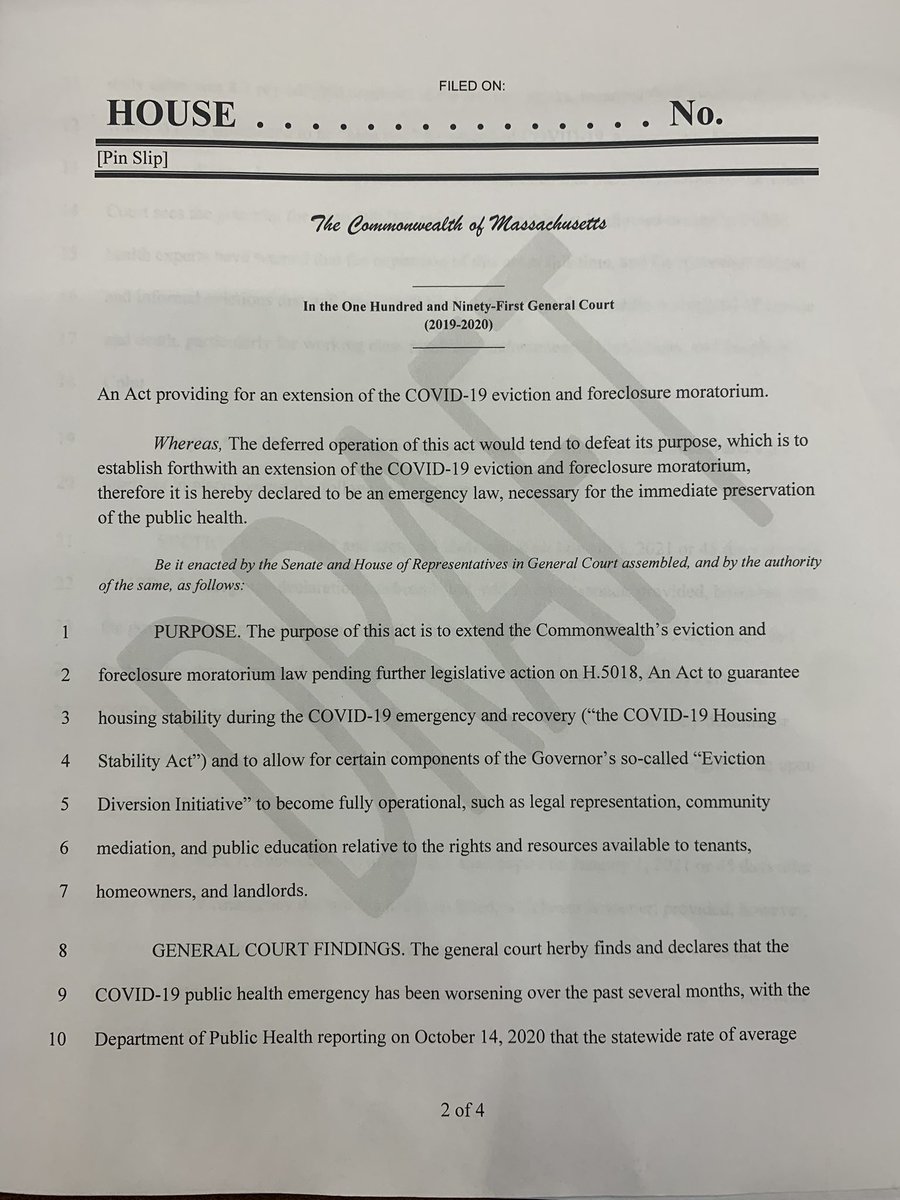
Governor Baker is hiring 15 retired judges to speed up the “eviction machine” once the eviction and foreclosure moratorium expires on Saturday.
@SpeakerDeLeo, please call the House back into remote formal session and pass a moratorium extension this week. bostonherald.com/2020/10/13/cha…
@SpeakerDeLeo, please call the House back into remote formal session and pass a moratorium extension this week. bostonherald.com/2020/10/13/cha…
For months as we’ve advocated to legislative leaders and the Baker Administration, we’ve often been told words to the effect of “don’t worry, there’s a huge eviction backlog, it’ll take time to get through it all...”
Now, “a Trial Court spokeswoman said the judges are being recalled ‘primarily to address the critical backlog of eviction cases throughout the commonwealth … until the Trial Court is up to date on eviction cases.’”
As I said to the Herald, we should use our limited funds to help keep people housed during the #COVID winter rather than further accelerating the eviction process.
• • •
Missing some Tweet in this thread? You can try to
force a refresh






